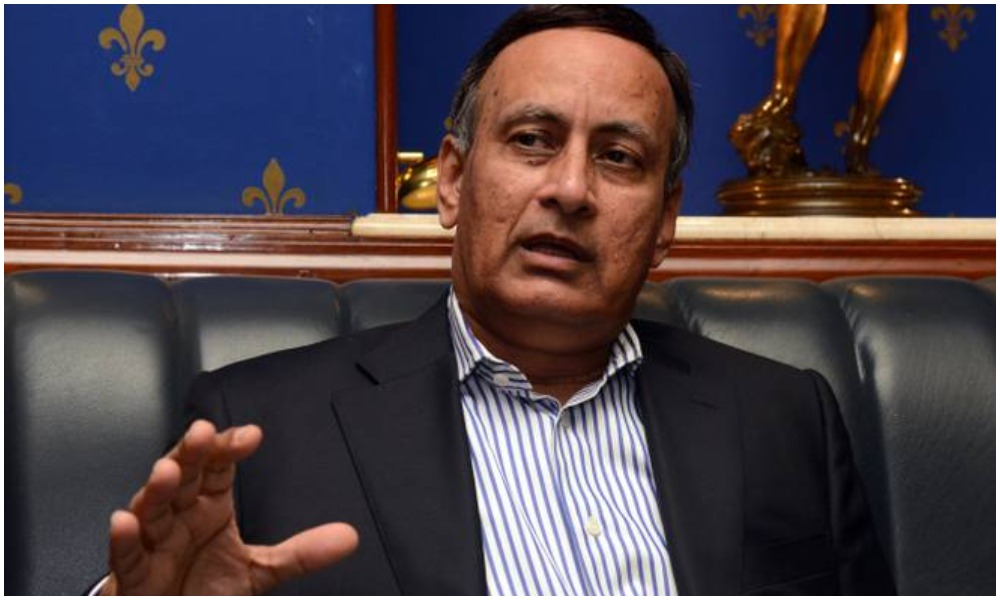US deal with Taliban nothing but a ‘withdrawal pact’, says ex-diplomat

Former Pakistani ambassador to the US, Husain Haqqani, said the agreement between the US and the Taliban has no element of peace and is basically a withdrawal pact for American troops from Afghanistan.
Speaking during a virtual event titled The Afghan Peace Process: Progress or Peril, which was organized by the Hudson Institute, Haqqani said he sees the February 2020 agreement as nothing short of a withdrawal pact.
He said the Taliban were made to commit to only one thing – that they would enter intra-Afghan negotiations. He said the Taliban were not made to commit to actually agreeing to peace.
Haqqani said the definition of peace for the Taliban is very different from the US.
“Taliban’s definition of peace is very different from that of the US or the Afghan government. The Taliban believes that once their Islamic Emirate is restored, peace is restored,” said Haqqani, who is currently the Director for South and Central Asia at Hudson Institute.
The Afghan government and the people of the country would welcome the predictability and discipline that might come with change of administration in the US, he noted.
“When state actors and non-state actors negotiate, usually there is a ceasefire as part of the deal. That hasn’t been done in Afghanistan? I don’t understand what reduction in violence is, does it mean two people instead of 10 being killed or 10 instead of 20?” he asked.
The Trump administration signed the agreement with the Taliban in February last year in Doha and as per the deal, the US agreed to withdraw all its troops from Afghanistan by the end of April this year.
The Taliban was meant to reduce violence, cut all ties with terrorist organizations including al-Qaeda and enter into peace talks with the Afghan government.
Bill Roggio, a senior fellow and editor of The Foundation for Defense of Democracies’ Long War Journal, who also participated meanwhile said that to understand what Taliban wants one needs to read their statements.
“The only acceptable outcome is the Islamic Emirate of Afghanistan. They have not fought all these years to take a silly ministerial post. What Taliban has been doing in the meantime is hollowing out Afghan civil society. All signs that Taliban is using these talks to run out the clock. It is not going to agree to give up violence,” he said.
“The Taliban promised before 9/11 that they will not host al-Qaeda and they lied. Why should we believe them today?” Roggio asked.
Javid Ahmad, Afghanistan’s Ambassador to the United Arab Emirates (UAE) and a Senior Fellow (non-resident) at the Atlantic Council, meanwhile stated during the event that Afghanistan as a country is complicated.
“The US presence has now effectively become a part of the Afghan power dynamics. Probably will remain so for the foreseeable future,” he said.
“There is a need for clarity in purpose, policy, and approach. We need clarity not just on Afghanistan’s future but also America’s future in Afghanistan. Previous administration drew a moral equivalence between the Taliban and Afghan government and so the outcome was one big mess,” Ahmad said.
According to Ahmad, Pakistan is hoping to dictate the talks and in the process bypass the Afghan government.
“Pakistan’s main audience has been Washington not Kabul. So difficult to come to terms with them on any bilateral agreement. The terms they are pushing for is a direct say in Afghanistan’s foreign and security policy and so Pakistan has traditionally treated us as a half state,” he said.
He did say however that the Afghan government is hoping the new Biden administration will work to redress the balance between the Taliban and the Afghan government so as to ensure that the Taliban “abandons their pursuit of creating their own version of Afghan apartheid” – a minority like rule over the majority of the population.
He said: “That is why I think … the belief of the broader Afghan public is that a US reset is not only warranted but it’s necessary; it’s required and I am really glad that the Biden administration is reviewing the key elements of that deal.”
Ahmad also stated Afghanistan is working very closely with its US partners, who will be sending a team to Kabul soon.
He said the immediate focus “on our end would be not just on the violence reduction but also on the ceasefire”.
“We’ll also see what the US decides to do in the NATO administration of course in mid-February but none of our NATO partners are in favor of withdrawing its forces by May 1 deadline,” he said – in reference to the NATO defense ministers meeting scheduled for later this month.
